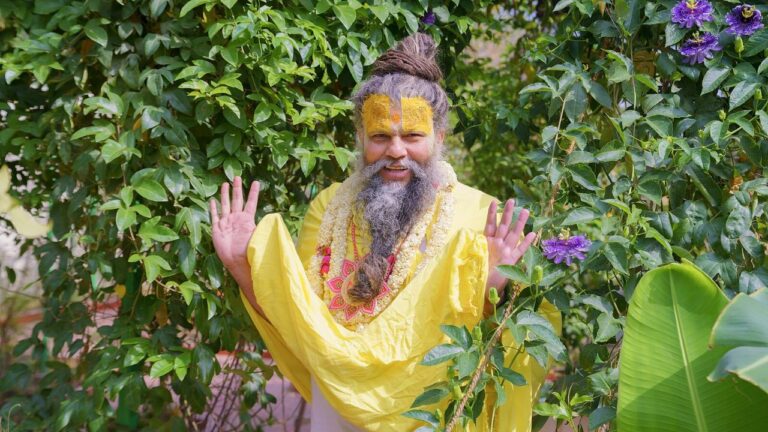
Stoicism's Wisdom: 10 Choices That Will Transform Your Life
The ancient Stoic philosophers shared important insights about living a good and purposeful life. Stoicism, which was created approximately 300 BC in Greece, emphasized the cultivation of wisdom, self-discipline, and inner tranquillity through intentional choices. Happiness, according to the Stoics, derived from living morally and separating from destructive emotions.
Table of Contents
The ancient Stoic philosophers imparted great wisdom on living a good life. Stoicism emphasized the cultivation of wisdom, self-discipline, and inner tranquillity through deliberate choices. Despite the fact that Stoicism was founded over 2,300 years ago, its precepts are still very relevant for finding contentment today.
1. Practice Self-Discipline Over Impulse
The Stoicism advocated control over destructive impulses and desires. Marcus Aurelius stated that true freedom comes through self-discipline, which allows one to focus energy on long-term fulfillment rather than fleeting desires. Practicing regular meditation, physical exercise, and moderation of pleasure develops emotional self-regulation. Self-discipline allows you to become the creator of your actions rather than a slave to every passing desire.
For example, avoiding overindulgence in food, drink, or leisure saves willpower for more significant pursuits such as learning new skills. Self-denial practice in tiny pleasures strengthens the ability to deal with larger obstacles. Self-discipline allows you both freedom and direction.
2. Choose Resilience Over Fragility
Consider each problem an opportunity to hone your courage, patience, and perseverance. Seneca, the Stoic philosopher, advised adapting difficulties into mental toughness training, saying, “Difficulties strengthen the mind, as labor does the body.” Adopting a resilient attitude cultivates poise and composure in the face of life’s storms. Not annihilation, but progress emerges from adversity.
Many people are irritated by being trapped in traffic or dealing with office politics. However, using Stoic resilience transforms hardship into an opportunity to demonstrate grace under pressure. With its lessons in mental fortitude, adversity has less influence over your inner state.
3. Practice Generosity Over Meanness
Treating people with active benevolence, kindness, and compassion is consistent with the Stoic emphasis on community and virtuous action. Small acts of generosity foster empathy, breaking down artificial social barriers. It also brings with it the benefits of connection and goodwill.
Being patient and helpful to a difficult student who is unable to grasp a concept, for example, creates a mutually uplifting sensation. Extending kindness in everyday interactions fosters humanity in both yourself and society. It exemplifies the Stoic ideal of service over selfishness.
4. Choose Patience Over Anger through Stoicism
The Stoicism advocated using reason to control emotional emotions, notably anger. “Anger surpasses all other vices in its brutality,” Seneca remarked. When you are upset or insulted, take a moment to examine the situation rationally before reacting. Patience allows for deliberate reactions rather than uncontrolled outbursts. It transforms confrontation into conversation.
Staying cool when insulted or angered, for example, neutralizes the aggressive energy of another. Patience gives you power and self-esteem. Responding with compassion prevents the anger from escalating. Patience exemplifies the Stoic distinction between passion and reason.
5. Take Positive Action Over Passivity
Passivity and worry over external events are seen bad by Stoicism. Concentrate entirely on what you have the ability to change. Taking positive actions toward goals on a daily basis, no matter how tiny, keeps you from losing control of your life. “Waste no more time arguing what a good man should be,” Marcus Aurelius said. Be one.” Wisdom is manifested via action.
For example, obsessing over the economy, politics, or health risks over which you have no influence is pointless. However, you have control over your attempts to gain new skills, connect with others in your community, and stay physically healthy. Small beneficial activities add up to bigger results over time. Passivity depletes agency, whereas positive activity generates it.

6. Choose Presence Over Anxiety
Excessive focus on the past or future causes unnecessary anxiety. The Stoics advocate totally immersing yourself in the present moment, with all of its opportunities, duties, and delights. According to Seneca, “we suffer more from imagination than reality.” Observing the present alleviates anxiety about what is out of reach.
For example, on your way home from work, pay close attention to the movement of the car, the music, and the changing scenery. Anxiety over upcoming events or meetings is replaced by a sensory immersion in the present. Mindfulness practice generates tranquility and insight. Every moment presents an opportunity to live deliberately.
7. Make Learning a Lifelong Endeavor
Sharpening one’s intellect and broadening one’s knowledge were essential Stoic objectives, based on Socrates’ adage that the unexamined life is not worth living. Adopting a lifelong learning mindset minimizes mental stagnation and overconfidence in your beliefs. It promotes an open, philosophical worldview.
Learning a second language or studying physics, for example, improves cognition and pattern identification. Reading history allows you to connect with the enormous sweep of human experience spanning millennia. Making learning a habit fosters humility by exposing past blind spots and assumptions. Our potential is unknown; continuous learning exposes it.
8. Choose Purpose Over Drifting
Identifying fundamental passions and utmost potential provides meaning and direction. “You have power over your mind, not outside events,” said Marcus Aurelius. When you realize this, you will discover strength.” Identifying a worthwhile goal directs your energies. Life loses significance and fulfillment when there is no continuous direction.
For example, ask yourself periodically what aims and legacy you want to leave behind. What would make your time on Earth meaningful? Outlining specific goals and ideals gives life form and urgency. It keeps you from squandering your gifts and meandering through your days aimlessly.
9. Practice Mindfulness Over Mindlessness
Mindfulness cultivation was key to the Stoicism training regimen. Learning to observe your thoughts and emotions objectively lowers impulsive reactions. It sheds light on mental processes and patterns. You get insight into anger and hunger causes without becoming engulfed in those moods.
Taking attentive walks, for example, focuses attention on sensory aspects, dissolving rumination. Meditation promotes tranquility by allowing thoughts to arise and pass without attachment. Mindfulness offers a safe haven; life becomes less overpowering. With enlightened awareness, you become an actor in your inner theater rather than a puppet.
10. Choose Courage Over Cowardice
Finally, the Stoicism advocated facing obstacles and sufferings head on rather than avoiding them. Fear frequently causes greater pain than the external occurrences themselves. Confronting difficulties fosters courage and agency. Courage makes noble objectives attainable. “Sometimes even living is an act of courage,” Seneca wrote.
For example, we may postpone asking for a raise, quitting a failed relationship, or changing careers out of fear. However, facing such issues with courage helps you bridge the gap between your values and reality. Stoic courage praises emerging from adversity and moving forward despite wounds. We assert our authority over our lives with boldness.
Enduring Value of Stoic Choices
The ancient Stoics understood that our everyday choices determine the quality of our lives. Their ageless set of values empowers us to live with wisdom, purpose, and resilience in the face of adversity. Adopting even a few Stoic options has a good knock-on effect, attracting greater virtue and tranquillity. The payoff is a more educated and happy human existence.
Conclusion
These Stoic choices have enduring importance and relevance. The ancient Stoics gave a timeless knowledge foundation for living with purpose, morality, and tranquillity. Their ideas about choosing choices that benefit ourselves and others are still relevant today.
While some consider Stoicism to be antiquated, its essential teachings on good thinking patterns and living well correlate closely with modern psychology. The ten Stoic choices mentioned here promote self-awareness, resilience, compassion, and eudaemonia, or the sense of a well-lived life.
The Stoics understood that hardship and uncertainty would always be with us. They demonstrated that wisdom, justice, and self-mastery are still attainable to anybody who seeks them. These ideas provide sustenance and guidance through life’s ups and downs.
The ancient Stoics stand out as models of humane and growing lifestyles. May we continue to learn from their thoughts in order to live nobly. We construct lives of purpose and delight by choosing Stoic choices.






